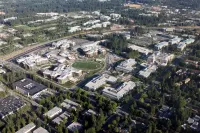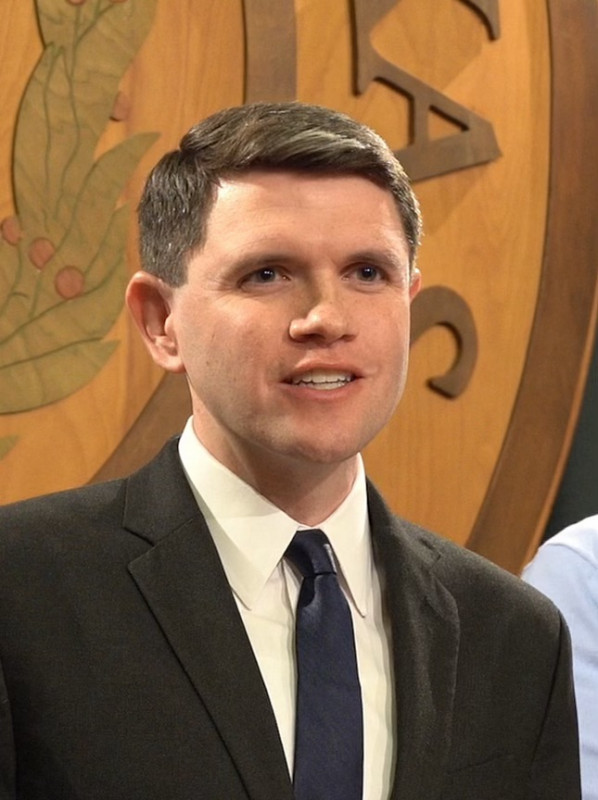Washington, commonly known as Washington state, is the northernmost state in the Pacific Northwest region of the United States. Named after George Washington, it is distinguished from the U.S. capital. Washington borders the Pacific Ocean to the west, Oregon to the south, Idaho to the east, and British Columbia, Canada, to the north. The state capital is Olympia, while Seattle stands as its most populous city. Washington is known for its diverse geography, including coastal areas, mountain ranges, and dense forests.
1900: Growth of the Black Community in Seattle
By 1900, the Black population in Seattle had grown to 406 individuals from a single person in 1858.
1915: Start of "Deep Freeze" Winter
A severe "deep freeze" winter began in 1915 and lasted into 1916. These winters are characterized by exceptionally cold temperatures, heavy snowfall, and prolonged freezing conditions in Western Washington, contrasting with the region's usual mild climate.
1916: "Big Snow" Event
The year 1916 was marked by a "Big Snow" event in Western Washington, a notable exception to the region's typically mild, marine climate. These events bring heavy snowfall, sub-zero temperatures, and prolonged periods of snow cover, significantly impacting the region.
1940: Collapse of the Tacoma Narrows Bridge
The Tacoma Narrows Bridge, known for its susceptibility to wind, collapsed in 1940 and was later rebuilt.
1941: Completion of the Grand Coulee Dam
The Grand Coulee Dam, the largest concrete structure in the United States, was completed in 1941. It marked the culmination of a project during the Great Depression to increase electricity production by building hydroelectric dams along the Columbia River.
1943: Hanford Works Atomic Energy Plant Opens
The Hanford Works atomic energy plant, instrumental in developing atomic bombs, opened in 1943 in Eastern Washington. This coincided with the state becoming a hub for war industries during World War II.
1949: Start of "Deep Freeze" Winter
The winter of 1949 ushered in a "deep freeze" period in Western Washington, lasting into 1950. These events are notable for bringing unusually cold temperatures, substantial snowfall, and prolonged periods of freezing, deviating from the region's typical mild, marine climate.
January 31, 1950: Seattle's Record Low Temperature
Seattle experienced its lowest officially recorded temperature on January 31, 1950, reaching 0°F (-18°C). This record low exemplifies the occasional extremes of Western Washington's climate, despite its generally mild conditions.
1950: Seattle Elects First Black Representative
Seattle elected its first black representative to the state legislature in 1950. This was a significant step in the civil rights movement and followed the Great Migration, which led to a more diverse population in Washington and successful efforts to combat workplace discrimination.
1955: Start of "Deep Freeze" Winter
Another "deep freeze" winter gripped Western Washington starting in 1955 and extending into 1956. These events are characterized by significantly colder temperatures than usual, heavy snowfall, and prolonged periods with freezing conditions, showcasing the occasional extremes of the region's climate.
1956: End of "Deep Freeze" Winter
The year 1956 marked the end of a "deep freeze" winter that had begun the previous year. These winters, with their prolonged periods of exceptionally cold temperatures and heavy snowfall, highlight the occasional extremes of Western Washington's climate, despite its generally mild conditions.
1965: Invention of Pickleball
Pickleball, a popular racquet sport, was invented on Bainbridge Island, Washington in 1965.
1968: Establishment of National Parks
By 1968, all three of Washington's national parks—Olympic National Park, North Cascades National Park, and Mount Rainier National Park—had been established. These parks, founded between 1899 and 1968, showcase the state's diverse natural beauty and commitment to conservation.
1968: Washington Favors Hubert Humphrey
In 1968, Washington was the sole western state to support Democratic nominee Hubert Humphrey over Richard Nixon.
1970: Legal Abortions in Washington
By 1970, Washington was one of only four states in the U.S. that already provided legal abortions. This pre-dated the landmark 1973 Supreme Court decision in Roe v. Wade, which led to the loosening of abortion laws across the nation.
1970: Black Population Growth
The 1970 U.S. census revealed that the Black population in Washington had grown to 7.13% of the total population, highlighting the impact of the Great Migration and the state's efforts to reduce discrimination.
1973: Roe v. Wade
In 1973, the landmark Supreme Court decision Roe v. Wade took place, which loosened abortion laws nationwide. Washington was one of only four states to already have legal abortions on request before this decision.
1977: Ballot Measure on Food Taxation
A 1977 ballot measure in Washington exempted most foods from sales tax. However, prepared foods, dietary supplements, and soft drinks remained subject to taxation.
1977: WTA Seattle Tennis Tournament Begins
The WTA Seattle tennis tournament joined the WTA Tour in 1977, marking the start of professional women's tennis in the city.
1979: Square Dance Becomes State Dance
Washington adopted the square dance as its official state dance in 1979.
May 18, 1980: Mount St. Helens Eruption
On May 18, 1980, Mount St. Helens erupted after a series of tremors and minor eruptions. The north face of the volcano experienced the largest landslide ever recorded, followed by a massive eruption that destroyed a significant portion of the volcano's peak, flattened surrounding forests, caused widespread ashfall, and tragically resulted in 57 deaths.
1980: Ethiopian and Eritrean Community Development
Washington saw the development of its Ethiopian and Eritrean communities since 1980, which first emerged in the late 1960s.
1982: WTA Seattle Tournament Ends
The WTA Seattle tennis tournament, part of the WTA Tour, concluded in 1982.
1985: John Spellman Leaves Office
John Spellman, the last Republican governor of Washington, left office in 1985, marking the beginning of a long period of Democratic control over the governorship.
1986: Start of GTE Northwest Classic
The GTE Northwest Classic, a Senior PGA Tour event, was established in Washington in 1986.
1988: Michael Dukakis Wins Washington
Democrat Michael Dukakis narrowly won Washington in the 1988 presidential election, marking the beginning of the state's shift towards becoming reliably Democratic.
1990: Running Start Program Established
The Washington state legislature established the Running Start program in 1990, allowing high school juniors and seniors to attend higher education institutions at public expense and earn college and high school credit.
1992: Washington Becomes Part of the Blue Wall
Since 1992, Washington has consistently voted for Democratic presidential candidates, becoming part of the Blue Wall.
1993: Patty Murray Begins Representing Washington
In 1993, Patty Murray became one of the United States senators from Washington.
1993: Washington Health Services Act
In 1993, Washington enacted the Health Services Act, mandating individual health insurance, employer-provided coverage, and coverage for pre-existing conditions by insurers.
1994: Republican Revolution Impacts Washington
Washington experienced a significant Republican surge during the 1994 Republican Revolution, with Republicans gaining seven of the state's nine House seats.
1994: Last Republican Senator, Governor, or Presidential Candidate Elected
Washington last elected a Republican senator, governor, or presidential candidate in 1994, tying with Delaware for the longest such streak in the US.
1995: End of GTE Northwest Classic
The GTE Northwest Classic, a Senior PGA Tour event held in Washington, concluded in 1995.
1995: Repeal of Health Services Act
The Washington Health Services Act, enacted in 1993, was largely repealed in 1995 before its full implementation.
1996: Democrats Gain a Seat in the House
Democrats successfully flipped one House seat in Washington during the 1996 election.
1998: Democrats Secure House Majority in Washington
Democrats gained two more House seats in Washington during the 1998 election, securing a 5-4 majority.
1999: Mount Baker Sets Snowfall Record
Mount Baker, situated near Washington's northern border, recorded a world record for snowfall in a single season in 1999, reaching a staggering 1,140 inches (95 feet; 29 meters). This event solidified its reputation as one of the snowiest locations globally.
2001: Maria Cantwell Becomes a US Senator
In 2001, Maria Cantwell assumed office as a US Senator for Washington.
2004: Study on Toxic Chemicals in Freshwater Fish
In 2004, a study by the Washington State Department of Ecology found unacceptable levels of toxic substances in freshwater fish from various sites, leading to investigations and advisories.
2004: Decline of Local Newspapers
Since 2004, Washington experienced a decline in local newspapers, with 37 closures and consolidation, particularly in the Seattle area.
2004: Non-Partisan Blanket Primary System Adopted
Washington implemented the non-partisan blanket primary system in 2004 after the approval of Initiative 872.
March 27, 2006: Phosphorus Limit in Dishwashing Detergents
On March 27, 2006, Governor Christine Gregoire signed House Bill 2322, limiting phosphorus content in dishwashing detergents to address algae blooms.
2006: Wine Production in Washington
In 2006, Washington ranked second in the US for wine production with over 31,000 acres of vineyards, producing 120,000 short tons of grapes. 600 wineries in the state exported to over forty countries.
2006: Climate Change Impact Assessment Published
The University of Washington's Climate Impacts Group released a report in 2006 titled "The Impacts of Climate change in Washington's Economy." This assessment provided an initial evaluation of the potential risks and opportunities for Washington state in the face of rising global temperatures and their anticipated effects.
2007: Fish Consumption Advisory Due to PCBs
Based on studies in 2007 and 2004, the Washington State Department of Health advised against eating mountain whitefish from a section of the Wenatchee River due to high PCB levels.
2007: Ban on Brominated Flame Retardants in Washington
Washington became the first state to ban highly toxic brominated flame retardants (PBDEs) from household products in 2007.
2008: Obama's Landslide Victory in Washington
In 2008, Barack Obama achieved a landslide victory in Washington, solidifying the state's status as reliably blue.
2008: Legalization of Physician-Assisted Suicide
In 2008, Washington voters approved a referendum that legalized physician-assisted suicide, making it one of 10 states to allow the practice.
2008: Early Phosphorus Ban Implementation
The ban on high phosphorus content in dishwashing detergents was implemented early in Whatcom County, Spokane County, and Clark County in 2008.
2008: Assisted Suicide Legalized
Washington became one of ten states to legalize assisted suicide in 2008 with the passage of the Washington Death with Dignity Act ballot initiative.
August 2009: School District Count
As of August 2009, there were 295 school districts in Washington, served by nine Educational Service Districts.
November 2009: Full Domestic Partnerships Approved
Voters in Washington approved full domestic partnerships through Referendum 71 in November 2009, marking the first time voters in any state had expanded same-sex relationship recognition through a ballot measure.
2009: Shift to Online Publication
In 2009, several Washington newspapers transitioned to online-only formats, including Seattle's Post-Intelligencer, reflecting a national trend.
2009: Television Market Rankings and Radio Landscape
In 2009, the Seattle-Tacoma television market became the 13th largest in the US. Washington had 39 full-power TV stations, supplemented by 11 from Oregon. The state also housed 383 FCC-licensed radio stations, with Seattle-based KEXP-FM gaining global recognition online.
2009: Washington State Broadband Project Launch
The Washington State Broadband Project was launched in 2009 and received $7.3 million in federal grants.
2010: Largest Religious Denominations
As of 2010, the Roman Catholic Church had the highest number of adherents in Washington with 784,332, followed by The Church of Jesus Christ of Latter-day Saints with 282,356 and the Assemblies of God with 125,005.
2010: Congressional Redistricting
Due to the 2010 Census, Washington underwent Congressional redistricting and gained one seat in the United States House of Representatives and one electoral vote.
2010: Center of Population
In 2010, Washington's center of population was determined to be in a remote area within the Cascade Mountains, specifically in eastern King County. This location is southeast of North Bend, northeast of Enumclaw, and west of Snoqualmie Pass.
2010: Languages Spoken at Home
The 2010 census revealed that 82.51% of Washington residents aged five and above primarily spoke English at home. Spanish followed with 7.79%, and other prominent languages included Chinese (1.19%), Vietnamese (0.94%), Tagalog (0.84%), Korean (0.83%), Russian (0.80%), and German (0.55%).
2010: Previous Census Data
The 2010 census serves as a reference point for measuring population growth, with the 2020 census showing a significant increase from the previous decade, emphasizing Washington's continued growth in population.
2010: Statewide Phosphorus Ban in Detergents
The statewide ban on high phosphorus content in dishwashing detergents took effect in 2010.
2011: Minority Population Under Age 1
In 2011, data revealed that 44.3% of Washington's population under the age of one year old belonged to minority groups.
2011: Funding for Broadband Infrastructure in Washington
Since 2011, $166 million in funding was awarded for broadband infrastructure projects in Washington state.
June 1, 2012: End of Liquor Monopoly
On June 1, 2012, the Washington State Liquor Control Board (WSLCB) relinquished its monopoly over liquor stores and distribution across the state following the implementation of Initiative 1183.
November 2012: Same-Sex Marriage Affirmed
Washington became one of only three states to approve same-sex marriage through a popular vote when Referendum 74 passed in November 2012.
November 2012: Recreational and Medical Cannabis Legalized
Washington became one of the first two states to legalize the sale and possession of cannabis for recreational and medical use when Initiative 502 was passed in November 2012.
2012: Jay Inslee Elected Governor
Democrat Jay Inslee was elected Governor of Washington in the 2012 gubernatorial election.
2013: Democrats Control Legislature
In 2013, Democrats held control of both the Washington State Senate and House of Representatives.
2014: Household Internet Access Ranking in Washington
Based on data from 2014 and 2015, U.S. News & World Report ranked Washington second nationally for household internet access.
2014: Republicans Take Senate Majority
Following the 2014 elections, Republicans gained a majority in the Washington State Senate, while Democrats retained control of the House.
2014: Implementation of Washington Healthplanfinder
Following the Affordable Care Act's passage, Washington adopted the Healthplanfinder system in 2014, serving about 90% of residents acquiring direct health insurance.
2014: Leading Agricultural Producer
In 2014, Washington held the top spot in the U.S. for the production of various agricultural products, including red raspberries, hops, spearmint oil, wrinkled seed peas, apples, sweet cherries, pears, Concord grapes, processing carrots, and processing green peas.
2014: Discontinuation of Washington State Broadband Project
The Washington State Broadband Project was discontinued in 2014.
2015: Online Download Speed Ranking in Washington
Based on data from 2014 and 2015, U.S. News & World Report ranked Washington sixth nationally for online download speed.
2015: US Open at Chambers Bay
The prestigious US Open golf tournament was held at Chambers Bay, Washington in 2015.
November 2016: Initiative 1433 Passed
Voters approved Initiative 1433 in November 2016, which included provisions requiring employers to provide paid sick leave to most workers.
2016: Ancestry and Hispanic or Latino Origin
According to the 2016 American Community Survey, 12.1% of Washington's population identified as Hispanic or Latino, with Mexican origin being the most prevalent at 9.7%. The top five ancestry groups reported were German (17.8%), Irish (10.8%), English (10.4%), Norwegian (5.4%), and American (4.6%).
November 2017: Democrats Regain Full Control of State Government
A special election in November 2017 resulted in Democrats gaining a one-seat majority in the Senate, giving them complete control over state government in Washington.
2017: Health Insurance Market Share
In 2017, Premera Blue Cross led Washington's health insurance market with a 24% share, followed by Kaiser Permanente at 21%. Molina Healthcare dominated the individual market with 23%.
2017: Minimum Wage Set
In 2017, Washington established a minimum wage of $11, with provisions for annual increases tied to the cost of living.
2017: Per Capita Effective Tax Rate
In 2017, Washington had the 18th highest per capita effective tax rate in the U.S.
2017: Ridership on King County Metro
King County Metro, located in Seattle and King County, recorded over 122 million riders in 2017.
January 1, 2018: Paid Sick Leave Law Takes Effect
Washington became the seventh state with paid sick leave requirements when a law passed in November 2016 through Initiative 1433 went into effect on January 1, 2018.
2018: Democrats Expand Majorities
The 2018 election saw Democrats increase their majorities in both the Washington State Senate and House of Representatives.
2018: Stricter Gun Laws Adopted
Washington implemented stricter gun laws following the passage of Initiative 1639 during the 2018 elections.
2018: Value of Agricultural Products
Washington's agricultural sector generated $10.6 billion in total product value in 2018.
May 2019: Sanctuary City Measure Enacted
In May 2019, Washington enacted a measure supporting sanctuary cities, similar to laws in California and Oregon, which are among the strongest statewide mandates in the US.
2019: Retirees and Veterans in Washington
In 2019, Washington had the 11th-largest population of retirees and veterans in the US, with over 560,000 individuals.
2019: Establishment of Washington State Broadband Office
In 2019, the Washington State Legislature established the Washington State Broadband Office with mandates for internet access expansion.
2019: Clean Energy Transformation Act Passed
The Clean Energy Transformation Act, requiring all electricity sales to come from zero-carbon sources by 2045, was passed by the Washington legislature in 2019.
2020: Washington Ranked Second Easiest State for Voting
A 2020 study identified Washington as the second easiest state for citizens to vote in.
2020: Student Enrollment Data for 2020-2021 School Year
During the 2020-2021 school year, 1,094,330 students were enrolled in Washington's elementary and secondary schools.
2020: Age Demographics
In 2020, Washington's population distribution across age groups was recorded as follows: 5.7% under the age of five, 21.8% under 18, and 16.3% aged 65 or older.
2020: Electricity Generation Sources in Washington
In 2020, hydroelectric dams were the primary source of electricity in Washington (55%), followed by natural gas (12%), coal (8.5%), wind (6%), and nuclear (4%).
2020: Jay Inslee Wins Third Term
In the 2020 election, Jay Inslee secured a third term as Governor of Washington, becoming the first incumbent in over 40 years to do so.
2020: Racial Composition
The 2020 census provided data on the racial composition of Washington's population.
2020: Census Data for Washington
The 2020 census recorded a population of 737,015 for the Seattle metropolitan area, highlighting its status as the most populous region in Western Washington. This data underscores the concentration of the state's population in the western part of the state.
2020: Census Records Population Growth
The 2020 census revealed that Washington's population had reached 7,705,281, marking a substantial 14.6% increase compared to the 2010 census. This data highlights the significant population growth the state has experienced.
2020: 2020 Census
The Seattle-Tacoma-Bellevue metropolitan area had a population of 4,018,762, accounting for over half of Washington's total population, as recorded in the 2020 census.
2020: Progress on Broadband Expansion in Washington
Throughout 2020, the Washington State Department of Commerce worked towards expanding broadband access, as outlined in their biennial report.
March 2021: Biennial Report on Broadband Progress in Washington
The Washington State Department of Commerce issued its first biennial report on the progress of broadband expansion in March 2021, covering developments throughout 2020.
June 2021: Heat Wave in Western Washington
During a significant heat wave in June 2021, Maple Valley, located in Western Washington, reached a high temperature of 118°F (48°C). This extreme heat event underscores the occasional vulnerability of Western Washington to extreme weather conditions despite its typically mild climate.
June 29, 2021: Hanford Records State's Highest Temperature
Hanford, Washington, experienced the highest temperature ever recorded in the state on June 29, 2021, reaching a scorching 120°F (49°C). This record-breaking heat highlights the extreme temperatures that can occur in the eastern region of the state.
2021: Growth of Wineries in Washington
By 2021, the number of wineries in Washington had increased to 1,050, indicating significant growth in the industry.
2021: Pickleball's Rise in Popularity
Pickleball was recognized as the fastest-growing sport in the US by the SFIA for three consecutive years, 2021, 2022, and 2023, reflecting its increasing participation rates.
2021: Teacher Employment Data for 2020-2021 School Year
Washington employed 67,841 teachers to educate students in elementary and secondary schools during the 2020-2021 school year.
2022: US Department of Defense Personnel in Washington
As of 2022, Washington had 108,542 total U.S. Department of Defense personnel, ranking seventh among states for active duty personnel.
2022: Religious Self-Identification
In 2022, the Public Religion Research Institute's American Values Atlas provided insights into religious self-identification within Washington.
2022: Results of the 2022 Election for US Representatives
The 2022 election determined Washington's ten representatives in the United States House of Representatives.
2022: Homeless Population
The Department of Housing and Urban Development's 2022 Annual Homeless Assessment Report estimated that there were 25,211 homeless individuals in Washington.
2022: Pickleball as State Sport
Washington designated pickleball as its official state sport in 2022, recognizing its growing popularity and local invention.
April 1, 2023: Washington State Population Estimate
As of April 1, 2023, the Washington State Office of Financial Management estimated the state's population to be 7,951,150, reflecting continued growth.
June 2023: Highest Gasoline Prices
Washington experienced the highest gasoline prices in the United States in June 2023, averaging $4.97 per gallon. This was partly attributed to having the third-highest gasoline tax nationally.
September 2023: Unemployment Rate
In September 2023, Washington recorded a 3.6% unemployment rate, ranking it 36th among U.S. states.
2023: Hospital Capacity and Ownership in Washington
As of 2023, Washington had over 14,000 acute care hospital beds across 93 facilities. Religious healthcare providers, mainly Catholic organizations, controlled a significant portion (49%) after acquisitions and consolidation.
2023: Proposal for Official State Nickname
In 2023, a bill to formally adopt "The Evergreen State" as Washington's official nickname was passed by the state senate but returned to committee.
2023: Continued Growth of Pickleball
Pickleball continued its reign as the fastest-growing sport in the US in 2023, solidifying its position as a popular recreational activity.
2023: Near-Universal Support for Same-Sex Marriage
The 2023 American Values Atlas by Public Religion Research Institute revealed near-universal support for same-sex marriage in Washington.
January 1, 2024: Minimum Wage Increase
Effective January 1, 2024, Washington's minimum wage rose to $16.28 per hour, marking the highest rate among all states. This increase was determined by a cost-of-living index.
2024: Sales Tax Rates
As of 2024, the combined sales tax rate in Seattle reached 10.25%, while Lynnwood, Mill Creek, and Mukilteo in Snohomish County shared the state's highest rate at 10.6%.
2024: Target for High-Speed Internet Access in Washington
The Washington State Broadband Office set a target to provide high-speed internet access to 100% of WA residents by 2024.
2025: Streetcar Network Expansion in Seattle
Seattle plans to further expand its 3.8-mile streetcar network by 2025.
2028: Target for Increased Internet Speeds in Washington
The Washington State Broadband Office aimed to increase internet speeds to 150/150 Mbit/s by 2028.
2030: Net-Zero Carbon Electricity Goal
The Clean Energy Transformation Act sets a goal for Washington to achieve net-zero carbon electricity by 2030.
2041: Light Rail Expansion Plan in Washington
Washington has a funded expansion plan to expand its light rail system to a total of 116 miles by 2041.
2045: Zero-Carbon Electricity Sales Goal
The Clean Energy Transformation Act mandates that all electricity sales in Washington must be from zero-carbon sources by 2045.
Mentioned in this timeline

Barack Obama the th U S President - was the...
The Affordable Care Act ACA also known as Obamacare is...
California is a U S state on the Pacific Coast...

Microsoft an American multinational technology corporation headquartered in Redmond Washington...
India officially the Republic of India is a South Asian...

The Catholic Church the largest Christian church globally with over...
Trending
2 months ago Kim Kardashian's 'All's Fair' on Hulu Faces Harsh Criticism: Series Deemed 'Worst'
Family is a fundamental social unit based on kinship or affinity It provides structure safety and predictability for its members...

5 months ago Messi's Bodyguard Suspended from Leagues Cup After Field Entry: Security Breach?

Martin Luther King Jr was a pivotal leader in the American civil rights movement from until his assassination in As...

2 months ago Texas Senate Candidate Talarico Faces Social Media Scrutiny: Following Porn Actors Sparks Controversy
The Harlem Globetrotters are an American exhibition basketball team renowned for their unique blend of athleticism comedy and theatrical entertainment...
Popular

Stranger Things created by the Duffer Brothers is a popular...

XXXTentacion born Jahseh Dwayne Ricardo Onfroy was a controversial yet...

Kelsey Grammer is an accomplished American actor producer and singer...

Candace Owens is an American conservative political commentator and author...

Bernie Sanders is a prominent American politician currently serving as...

Melania Trump a Slovenian-American former model has served as First...